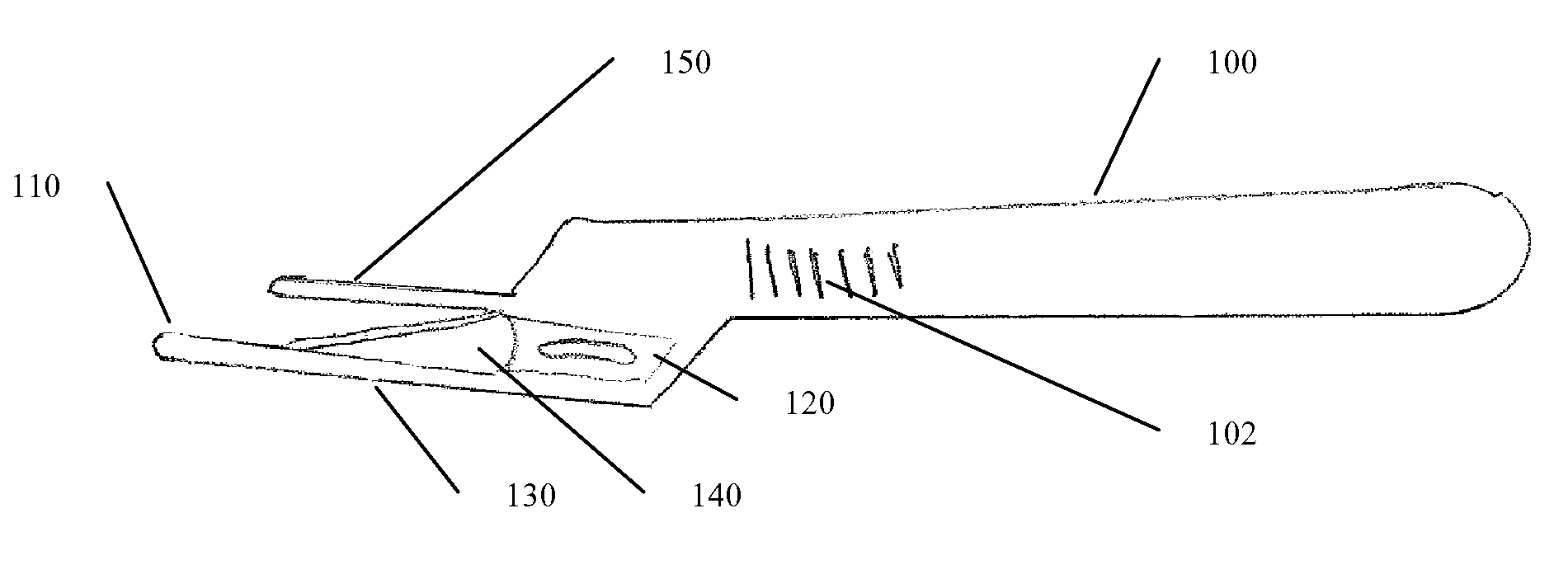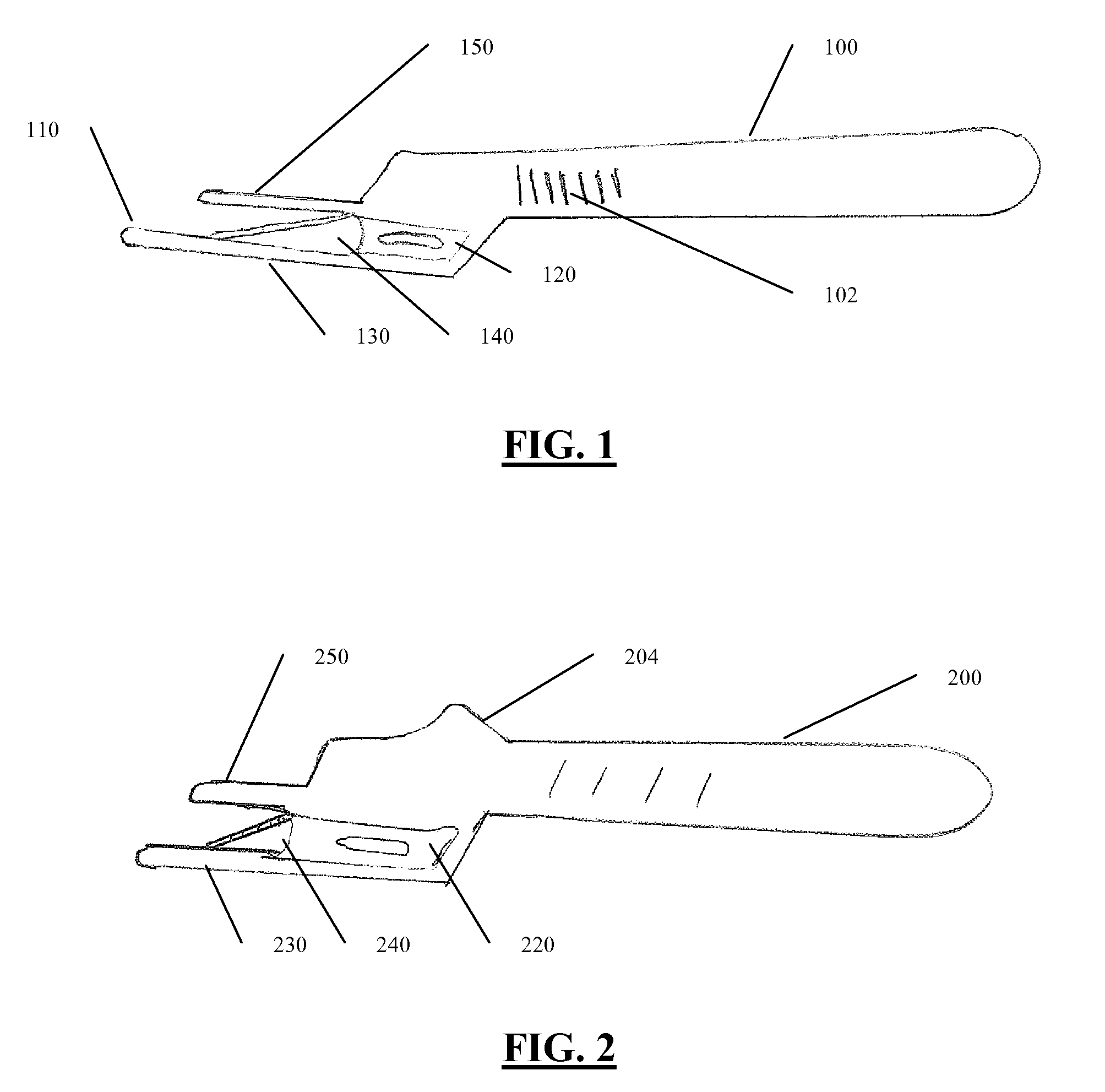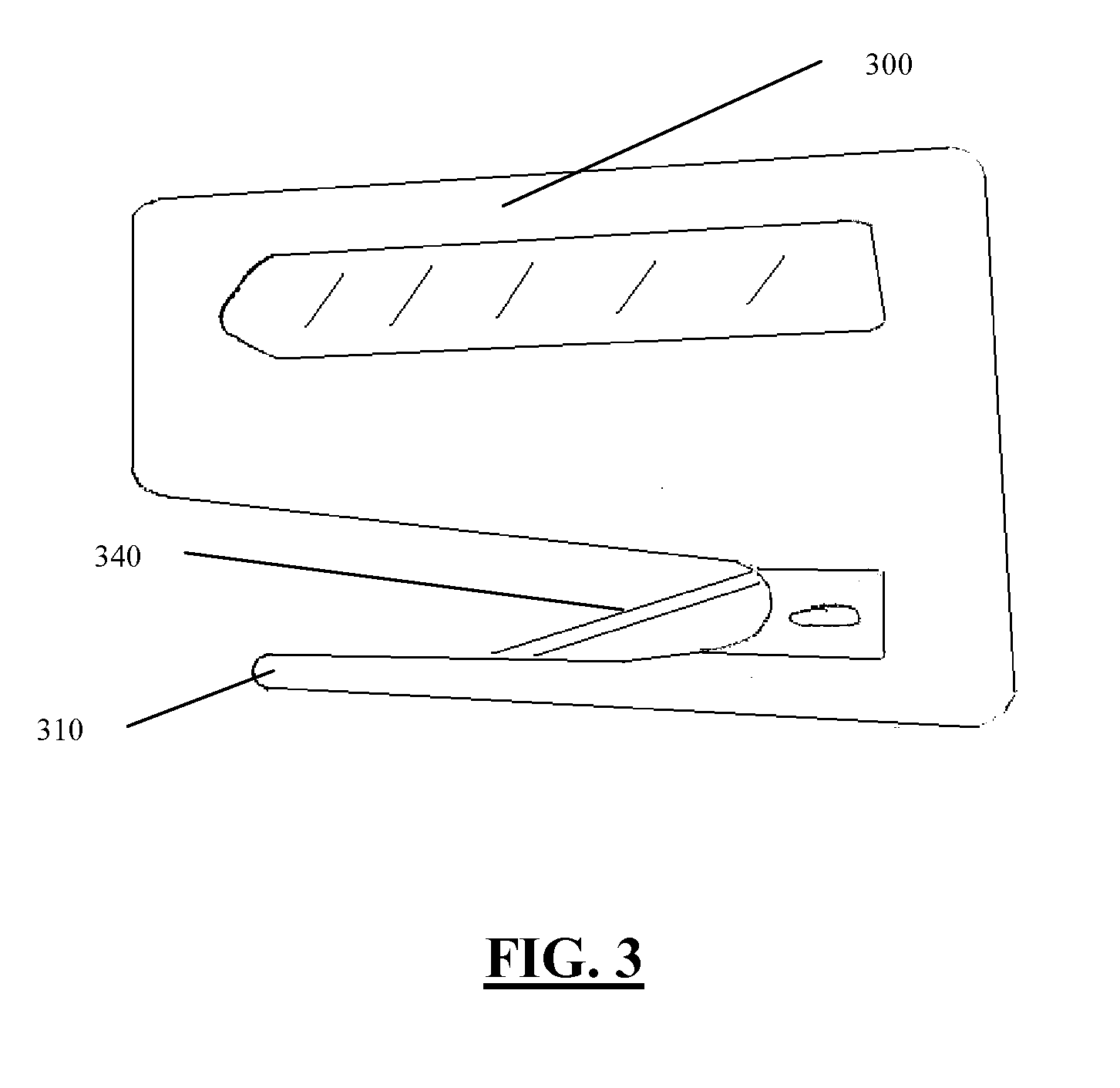Scalpel Blade Holder
a blade and handle technology, applied in the field of blade handle, can solve the problems of inability to properly handle the blade, inadvertent trauma to vital abdominal organs, and insufficient tools in some respects
- Summary
- Abstract
- Description
- Claims
- Application Information
AI Technical Summary
Benefits of technology
Problems solved by technology
Method used
Image
Examples
Embodiment Construction
[0017]Exemplary embodiments of the invention will now be described below by reference to the attached Figures. The described exemplary embodiments are intended to assist the understanding of the invention, and are not intended to limit the scope of the invention in any way. Like reference numerals refer to like elements throughout.
[0018]As described above, the use of a traditional scalpel blade holder when performing surgery in some contexts is dangerous and inefficient. The inventive scalpel blade holder eliminates these deficiencies by incorporating a design that allows the surgeon to cut away from vital internal organs. This makes inadvertent laceration or blunt trauma to abdominal organs unlikely, and also increases the efficiency of the surgical cut, because a secondary instrument, such as forceps or the surgeon's forefingers, are no longer required.
[0019]An exemplary embodiment of the inventive scalpel blade holder is shown in FIG. 1. In this embodiment, a handle 100 includes,...
PUM
 Login to View More
Login to View More Abstract
Description
Claims
Application Information
 Login to View More
Login to View More - R&D
- Intellectual Property
- Life Sciences
- Materials
- Tech Scout
- Unparalleled Data Quality
- Higher Quality Content
- 60% Fewer Hallucinations
Browse by: Latest US Patents, China's latest patents, Technical Efficacy Thesaurus, Application Domain, Technology Topic, Popular Technical Reports.
© 2025 PatSnap. All rights reserved.Legal|Privacy policy|Modern Slavery Act Transparency Statement|Sitemap|About US| Contact US: help@patsnap.com



